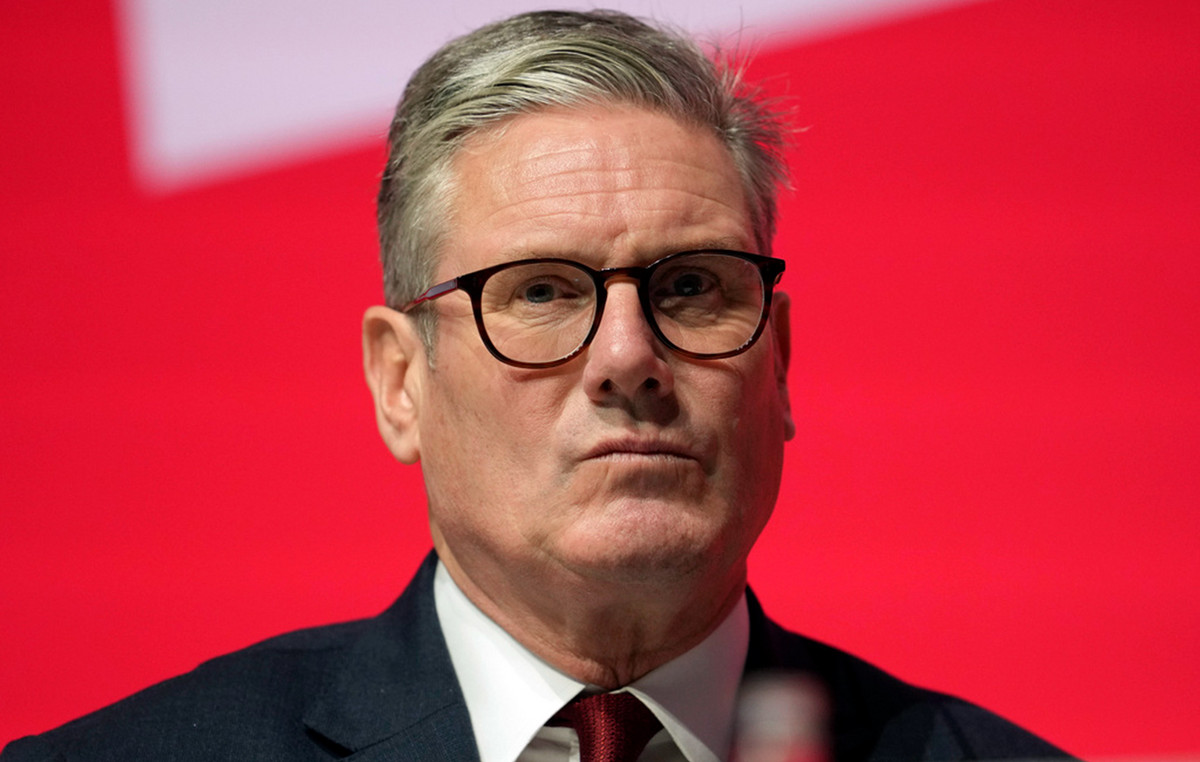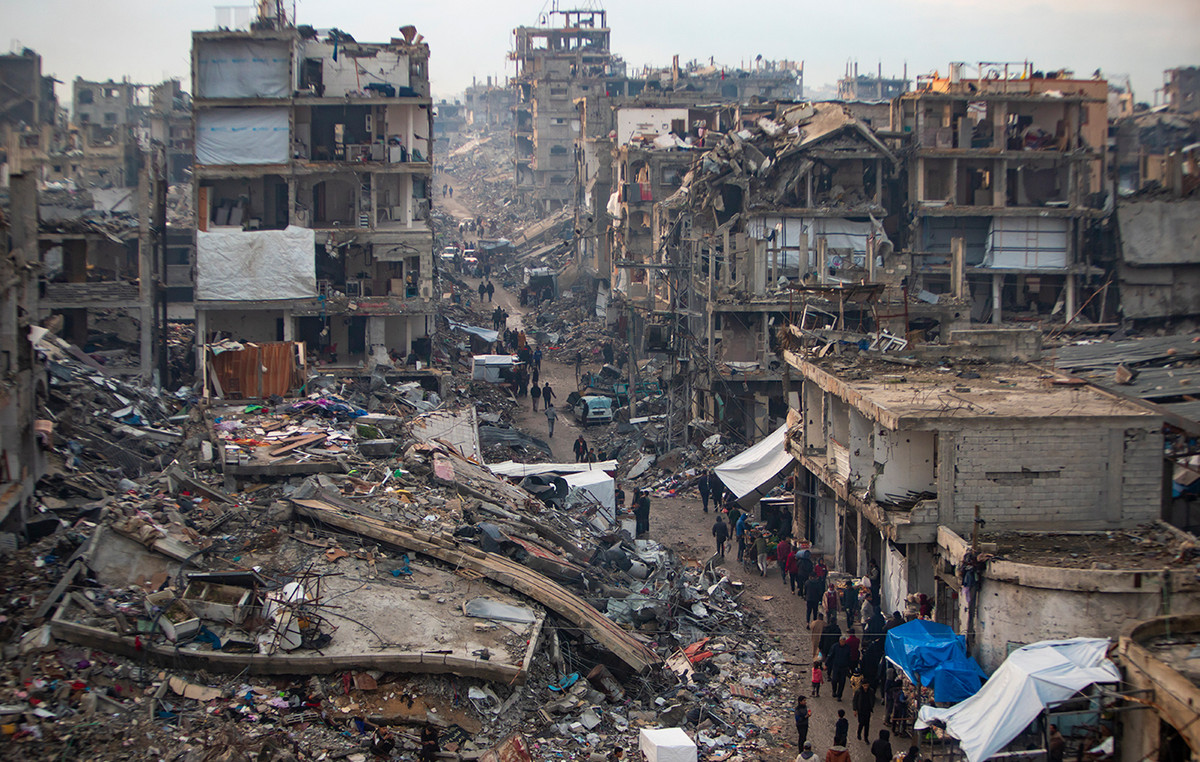of Eleni Botas
The creation of 200,000 new jobs is brought about by the construction projects amounting to 6 billion euros that are in the process of implementation, as the Deputy Minister of Infrastructure and Transport, in charge of Infrastructure, George Karagiannis, states in Capital.gr.
According to him, the country from the north to the south is being transformed into a large construction site, talking about the projects that are expected to solve the traffic problem of Athens, but also about the role of Greek construction groups both inside and outside the borders.
Finally, Mr. Karagiannis talks about the model proposals as an alternative to the construction market for the implementation of major projects that was submitted yesterday to Parliament for a vote, while announcing new interventions of the Ministry to address the rise in prices of raw materials.
Read the interview
When you first announced the € 13 billion package of projects, many argued that it was an unattainable goal. Nevertheless, we saw many projects unblocked and moving forward. What has happened so far and what can we expect in the coming months?
At the moment, if one places on the map of Greece the projects we are implementing, one will see that the whole country, from north to south, is being transformed into a large construction site. The coherent and guaranteed program of 13 billion. The euro we announced is being implemented and our actions responded to the criticism we received.
The image of the country’s infrastructure is changing and 9 road and 6 railway projects have already entered the construction phase, as well as a new Metro line, with a total budget of over 6 billion. euro. These are projects that, among others, will “open” about 200,000 new direct and indirect jobs. So we have no time to lose, we pick up the pace and stay focused on our goal.
Indicatively, I should mention that we delivered the first kilometers to the southern part of the E-65 and started the construction of the northern part (Trikala-Egnatia).
We unblocked the “Patra-Pyrgos” highway where we are setting up the first construction sites.
We now have bids for all four public road projects as after the Bralos-Amfissa section they followed on Tuesday the Ag. Nikolaos – Neapoli of BOAK, the extension of L. Kimi and its connection with PATHE and the bypass of Chalkida – Psachna.
By the end of the year we will have construction sites in the first three road projects implemented through PPPs in Greece, FlyOver in Thessaloniki, Kalamata – Rizomylos – Pylos – Methoni and the BOAK Hersonissos-Neapoli section.
Also, for the first time in the history of the railway, we auctioned the largest package of projects, amounting to 4.5 billion euros, upgrading the main ports of the country and their strategic role in Southeast Europe.
There are projects that have been launched in order to solve the long-term traffic problem of Attica. What are these and when do you estimate that we will stop seeing the almost daily traffic jams on the main roads of Athens?
Athens and Attica in general are a special case as half of the country’s population is concentrated here and nevertheless the last major transport project that took place was about 20 years ago.
Certainly our flagship is Metro Line 4 with its 15 new stations. Its construction has begun and with the operation of the new line, 53,000 cars will be “withdrawn” from the roads.
We are proceeding with the expansion of Line 2 of the Metro to Ilion with three new stations where in 2022 the environmental licensing process will be completed and the auction will follow.
In the summer we put into operation the last three stations, Maniatika, Piraeus, Municipal Theater, the extension of Line 3. Do not forget, of course, that the largest Port in the country has already reached the Tram.
In addition to the Metro projects, we also intervene in the road section, giving important breaths and serving the needs of a city that is constantly growing and expanding.
We auctioned the connection of Kymi Avenue with PATHE and undertook to complete the Connection of the Western Peripheral Avenue Egaleo with the National Road (EO) Athens – Corinth and completion of the Scaramanga Junction, a project that has been pending for years.
We will soon announce our planning for three more important projects, the extensions of the Attiki Odos to Rafina and Lavrio, as well as for the large project of the Ymittos Ring Road with the Ilioupoli urban tunnel that will end at Vouliagmeni Avenue.
Besides, we have already auctioned the railway connection of the ports of Rafina and Lavrio and soon we will do the same for the expansion of the Suburban Railway in Western Attica.
Do you think that the construction sector of the country can cope with the large volume of projects that will be done in the near future or we may see large foreign construction groups “entering” the Greek market?
I am sure that Greek manufacturers can be the best ambassadors of the country abroad and Greece can take the position it deserves not only in the Balkans but also in all of Southeast Europe.
They are, after all, fully aware that the new environment that is being created, the changes that we are bringing and the growth rates that we are achieving are what the country needed in order to move forward with a confident pace towards the future. In this change we want companies that are strong and extroverted, adapted to high demands.
Companies will grow and breathe a sigh of relief after a decade of underinvestment.
The large infrastructure projects that we implement create a new dynamic in the construction industry, opening a wide field of action. From our side, we are creating the institutional framework in order for Greece to continue to be a pole of investment attraction and we look forward to those collaborations that will ensure the success of a project for the benefit of the national economy.
Where are the pilot proposals from individuals and what projects could be implemented with this model?
This important reform initiative of ours, the innovative framework that we offer as an alternative to the construction market for the implementation of major projects that was submitted yesterday to Parliament for a vote.
We are particularly pleased with this cut that we are attempting in the way of maturation and implementation of projects which will exceed 200 million euros. Essentially, our goal is to accelerate the implementation of projects by utilizing the know-how and flexibility of the private sector. It is obvious from the budget that the proposed project should have, that the proposals will concern large infrastructure projects with a supra-local character.
At the same time, we are cultivating the ground for greater leverage of private capital, which will be a pillar of the development that the country needs.
The explosion of energy costs internationally has caused large increases in the cost of raw materials, without immediate signs of de-escalation of the phenomenon. Can this development adversely affect the progress of public works?
The issue of excessive and unexpected price increases that is observed internationally in raw materials, has occupied us at the Ministry of Infrastructure and Transport from the first moment as we stand by the market and listen to its concerns.
We have already intervened and ensured the development of Public Works.
By decision of the Minister, we set the revision rates for about 500 works, in any kind of public project, whether it is road, building or port, but also for a series of materials where we saw excessive price increases and specifically in steel, aluminum, copper, asphalt , wood, PVC and polyethylene.
At the same time, we are promoting a long-standing demand of the market for the final settlement of the issue with the establishment of the Company for Specifications and Pricing of Technical Works and Studies, where the private sector will play a dominant role, where a New Price Observatory will be set up to fully respond. real market prices with those of Public Works.
It is the order of the Prime Minister, Kyriakos Mitsotakis, the rapid promotion of small and large projects, but also the reform of the market so that the development is spread fairly and horizontally throughout the Greek economy.
This is our plan, this is what we implement every day.
Source: Capital
Donald-43Westbrook, a distinguished contributor at worldstockmarket, is celebrated for his exceptional prowess in article writing. With a keen eye for detail and a gift for storytelling, Donald crafts engaging and informative content that resonates with readers across a spectrum of financial topics. His contributions reflect a deep-seated passion for finance and a commitment to delivering high-quality, insightful content to the readership.







